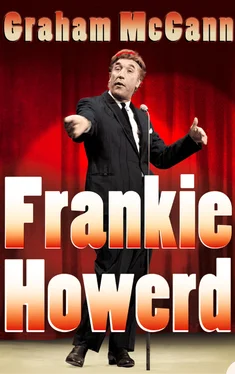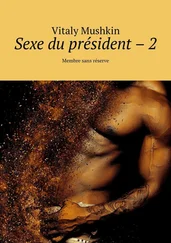Those around him with a vested interest were quick to take notice. Both Scruffy Dale and the Jack Payne Organisation, in particular, were keen to exploit their still rather âgreenâ clientâs increasingly propitious situation. Dale began urging Howerd to invest (or rather to allow him to invest on Howerdâs behalf) in various stocks, shares and properties, and Jack Payne persuaded him to sign a dubious new ârollingâ contract (if things continued to go well, the star was fine, but if things started going downhill, the agency was free to drop him and walk away). Howerd did what he was told â he possessed at that time neither the head nor the disposition for serious business â and returned to his rehearsals.
He just wanted to be true to his ideals. He just wanted to keep sounding real. He had overcome so much to get where he was, and now he was desperate to ensure that he would stay there.
Preparation for the next show always began straight after the last. There were no boozy parties, no relaxing evenings out at restaurants, no lazy mornings in at home lapping up all of the positive reviews: there was just work. Plagued by doubts, the famously fastidious Howerd would spend hours walking up and down lonely country roads and wandering around local churchyards and cemeteries, mumbling to himself his lines and trying out all of his countless âumsâ, âoohsâ, âahsâ and âoh nosâ, in the manner of a text-book obsessive-compulsive. Each joke, monologue, sketch and supposedly throwaway remark was shaped and then repeatedly reshaped (often as many as seventy times) until every single element â the structure, the rhythm, the pace, the humour, the tone â sounded as good and as true as it could.
âThe great paradox of show-business,â Howerd observed, âis that you have one of the most insecure professions in the world attracting the most insecure people. In my case I was a nervous wreck with tremendous determination.â 11 The accuracy of this candid self-description was never more painfully evident than during these early days in radio. On tour, he said, when there was only one script for him to memorise, âI could be relatively relaxed once Iâd got over the terror of opening night.â On radio, however, where the script was always new, âevery broadcast was an opening nightâ: âI worked so hard on my material, and was so bedevilled by nervous insecurity, that after every Variety Bandbox Iâd go home with a dreadful migraine.â 12
Howerd was hard on himself, but then he was hard on his colleagues, too. Having worked so diligently on every detail of his act, he expected others to display the same high levels of professionalism, discipline and commitment â and he could be startingly blunt and rude to anyone who (in his opinion) fell short of those exacting standards. Most of his angry outbursts soon blew over, and were followed more or less immediately by a completely sincere expression of remorse, but, none the less, not many of them were very easily forgotten. Working with Frankie Howerd was invariably a fairly tense affair.
What normally made all of the fussing and fretting undeniably worthwhile â both for him and for them â was the finished product. At his best, the production team appreciated, Frankie Howerd really was worth it, and most of the rows, they realised, only came about because he always wanted so badly to be at his best.
By March 1947, however, a degree of fatigue was creeping in. Drained by the strain of having to continue to combine his touring commitments as a member of For the Fun of It with his current radio duties as an employee of the BBC, he began to sound a little stale. While millions of listeners remained happily captivated by the vibrant originality of his style, a slightly more knowledgeable minority had started to hear, just beneath all of those surface âoohsâ and âahsâ, the sound of someone scraping at the bottom of a barrel.
Howerd was running out of ideas. With no reliable supply of first-rate comedy material, he was gradually being forced into a number of bad habits: too many verbal tics, too few strong stories, too much waffle and far too many return visits to the well-trodden boop-boop-dittem-datten-wattem-choo territory of âThree Little Fishesâ. The whole thing was getting to sound a little bit robotic.
It was not that he had stopped trying so hard. He was trying harder than ever. It was just that he now had less than ever with which to work.
He did what he could. The rehearsals grew longer, the rows louder and the recordings more manic, but the act still seemed to lack some of its old joyful brio.
Things came to a head at Easter. Howerd was performing in For the Fun of It at a theatre in Peterborough, and also preparing for his next trip up to London to record another edition of Variety Bandbox (which by this time was moving its broadcasting base back and forth between the Camberwell Palace, the Kilburn Empire and the Peopleâs Palace in the Mile End Road). While he was resting in his dressing-room, an urgent message came from Jack Payne: the BBC, he was told, had recently conducted another one of its routine audience surveys, and the results contained bad news for Howerd. It seemed that, while Derek Royâs popularity (rated out of 100) was still, somewhat improbably, hovering just above the 70 mark, Howerdâs had suddenly plummeted all the way down to the 30s. 13 According to Payneâs unidentified contacts within the Corporation, the performer (and, more pertinently, his scripts) would have to improve, and soon, or else he risked being removed from the show for good.
âThe news would have shaken even the most hearty extrovert,â recalled Howerd, who was patently anything but; âI nearly collapsed on the spot.â 14 He had, deep down, been half-expecting the arrival of some sort of negative news like this, but nothing remotely as bad as this, and, now that it was here, he felt lost. Something had to change, he acknowledged, but the big question now was: what?
CHAPTER 6
The One-Man Situational Comedy
In a way, desperation forced me into some small measure of originality .
If Frankie Howerd had merely been a fighter, he might well have fallen and remained floored on that bleak day at Easter. The bad news that he received could easily have felt like one blow too many. Fortunately, however, he was not merely a doughty fighter; he was also a deep thinker, and he responded, once again, with intelligence as well as grit.
After giving in, for a few hours, to an understandably powerful surge of self-pity â during which he walked aimlessly through the streets of Peterborough feeling dazed and âmiserable beyond wordsâ 1 â he returned to his dressing-room, tried his best to clear his head, and then did what he always did when faced with such a problem: he thought. He thought about every tiny aspect of his act, every element of his technique, every decision he had either made or failed to make, and every gag, every expression, every gesture, every routine, every show, every review, every hope and every fear â everything. The search would not stop until he had found the true causes of all the flaws.
The decline in the quality of his material, he acknowledged, had been the obvious catalyst for the crisis, but he felt sure that there was more to it than that â even though, much to his frustration, he could still not quite make himself comprehend what, precisely, it was. Then, after agonising over his analysis for countless hours, the answer suddenly came to him: it was sound, not vision.
âIt was ridiculous,â he later exclaimed, âthat neither the BBC nor the Jack Payne Organisation had spotted it, and I was singularly stupid not to have been aware of it much earlier onâ:
Читать дальше












